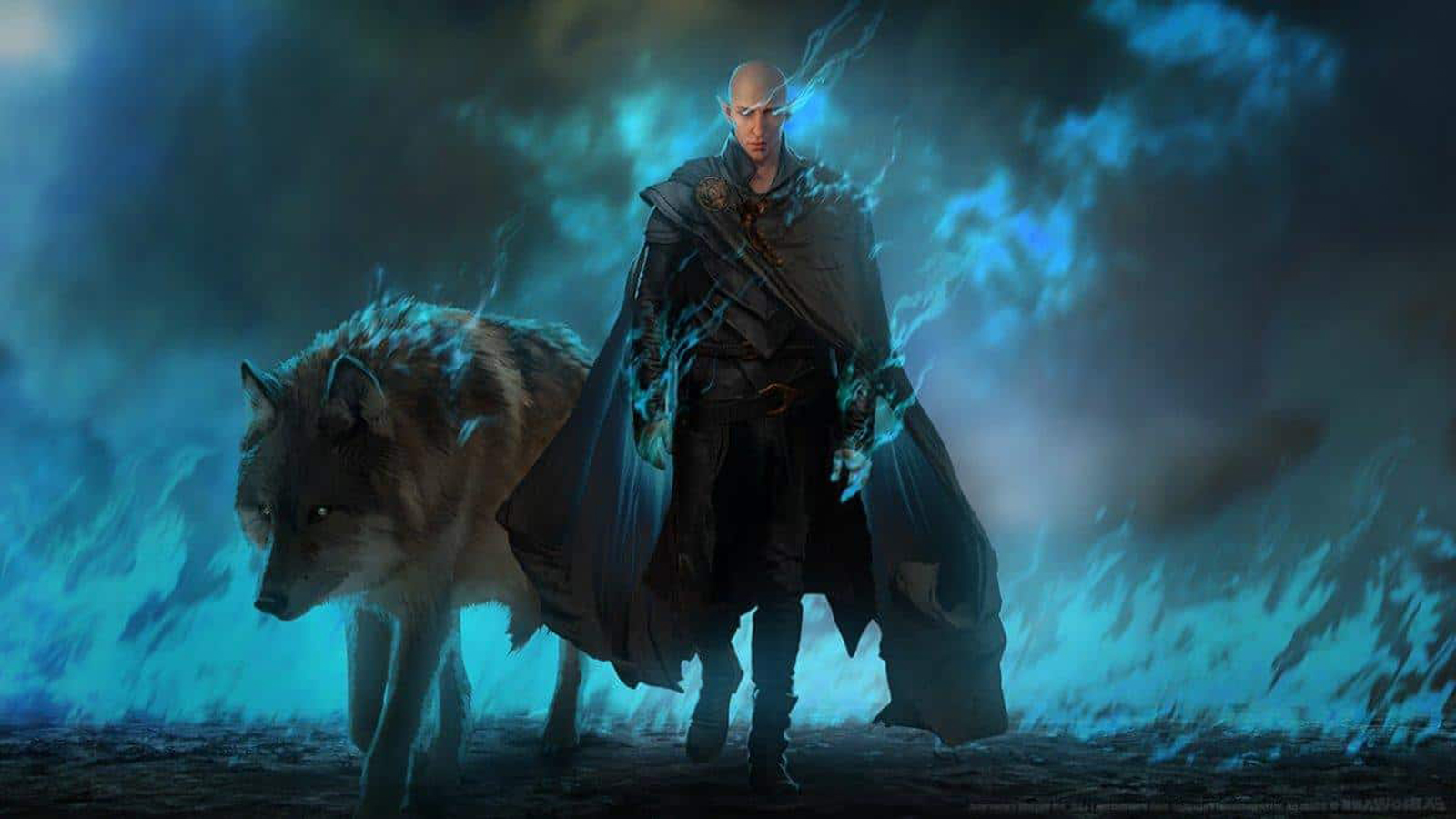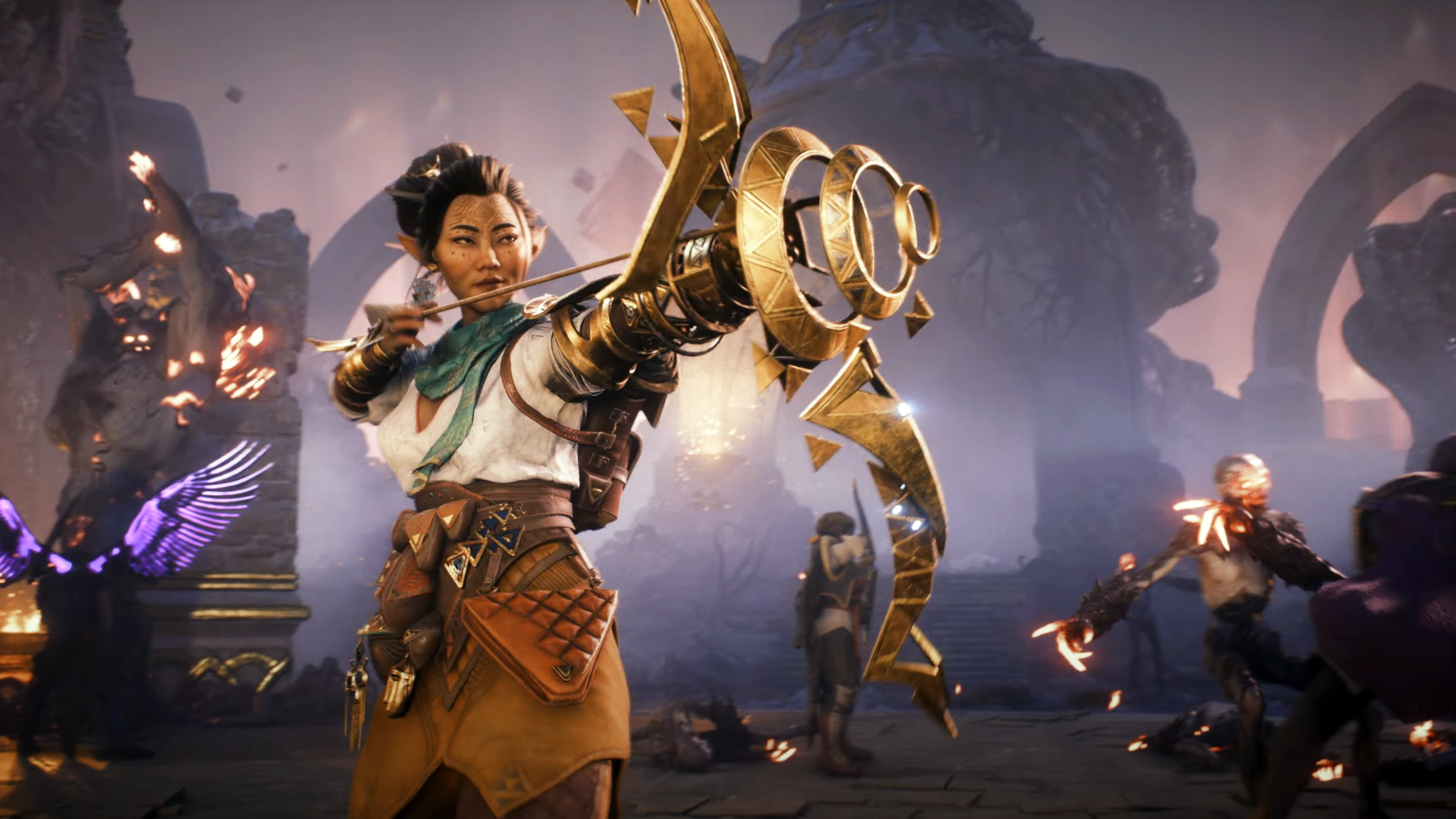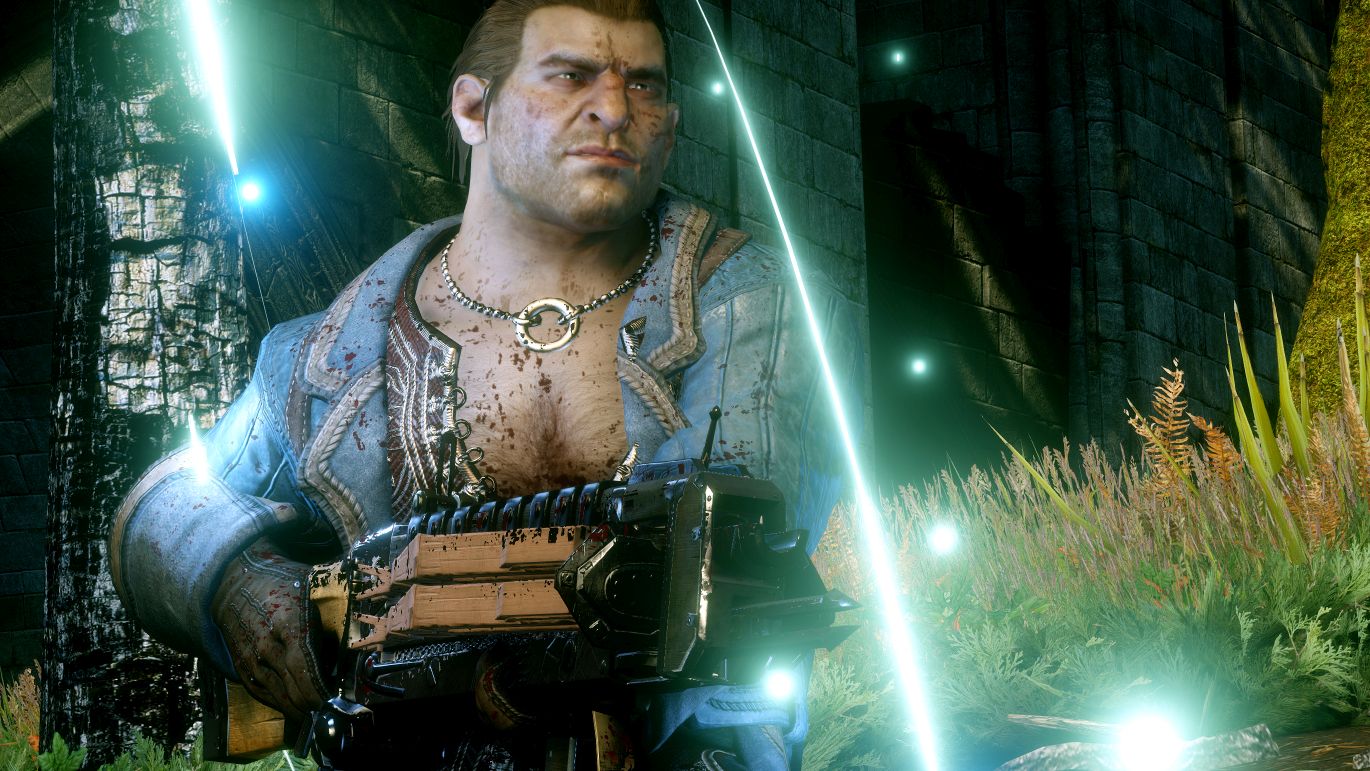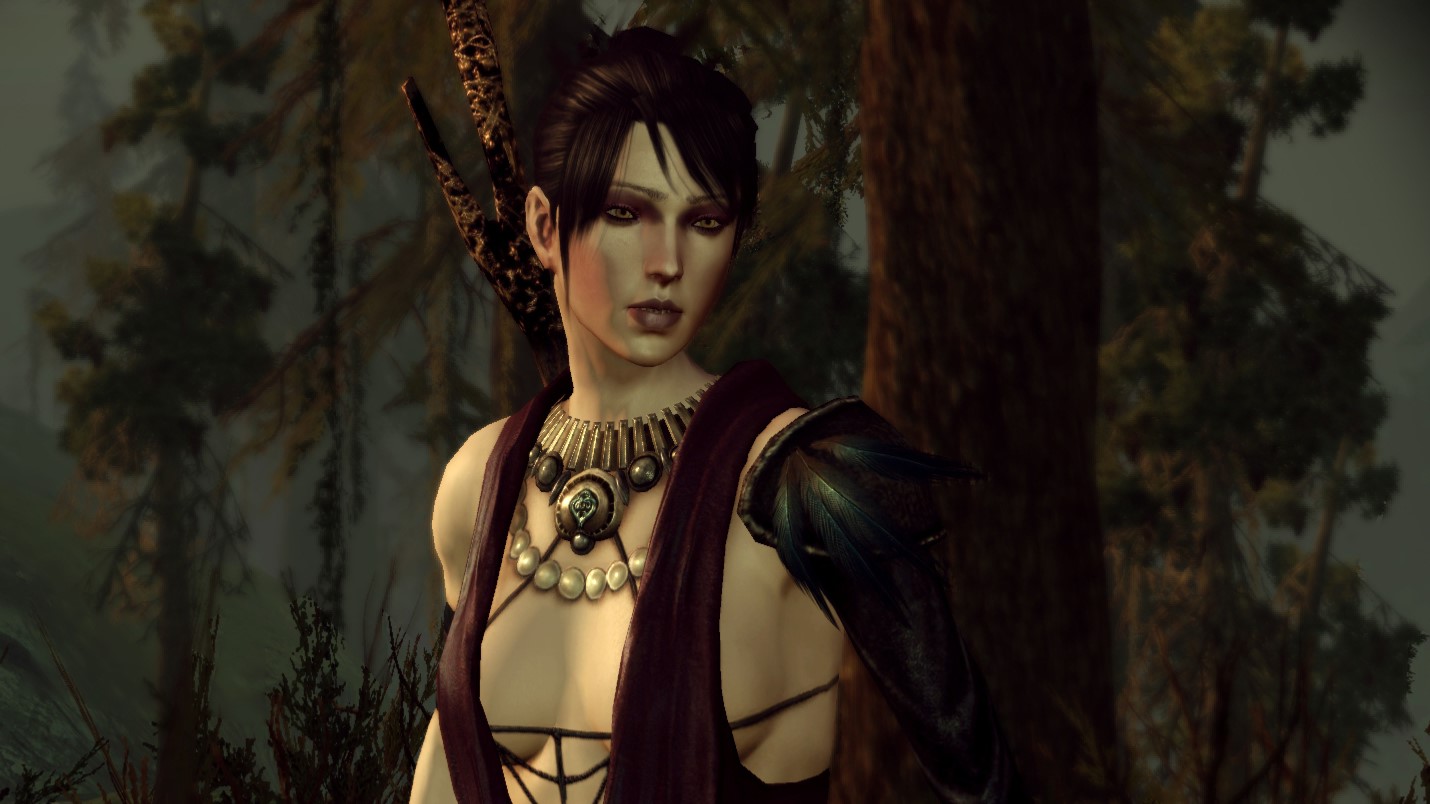
To say I'm not especially enthused about the long-awaited new Dragon Age sequel, The Veilguard, would be a bit of an understatement. As a longtime series fan, the new game just doesn't seem to have the look, the charm, or the RPG depth I'm after compared to previous entries.
Coming from that perspective, I've noticed an uncomfortable trend in the way BioWare developers have been talking about the project: that is, dogging on the old games to make the new one sound cool.
It's particularly noticeable across a run of recent GameInformer interviews, as part of their really extensive exclusive look at the game. For example, speaking about the battle mechanics, Mark Darrah (consultant on the game and former executive producer on the series) says: "Previous Dragon Age games got to the realm of 'combat wasn't too bad'. In this game, the combat's actually fun."
As a longtime BioWare veteran who worked across the whole series, Darrah's more than entitled to his perspective, but hold on now. I think Origins' more old school, strategic combat was really fun, and I'm pretty sure I'm not the only one. DA2 and Inquisition's fights were better than merely serviceable, too, and where I do think they were flawed, it was mostly in how they reached for a more action-heavy feel—exactly the style that The Veilguard is leaning into more strongly than ever, as seen in the gameplay reveal.
In speaking about the game's companion characters, his comments get even stranger: "The thing that is so amazing about Veilguard is this is the game where we finally said out loud that BioWare's greatest strength is telling stories through characters. If you go all the way back to Baldur's Gate 1, Baldur's Gate 2, these games are telling stories through characters, but there wasn't an intentionality behind that."
Again he's the man who would know—Darrah's history at the studio goes back much further than Dragon Age—but the notion that this is the first time BioWare has ever "intentionally" told stories through characters is baffling to me.
"In this game, we're finally putting that intentionality first and foremost," he goes on to say. "Putting the characters first, building the game around that, around those character moments, which is really the best way that BioWare knows how to tell stories."

I can't say that gels with my experience as a player of BioWare's RPGs at all, and particularly not the Dragon Age series. All that time spent interacting with characters, following their personal stories, romancing them, seeing their reaction to events—none of that was intentionally telling stories through characters?
Sure, those character arcs have always revolved around some world-ending threat, but The Veilguard is as deep in the realm of scary dark lords as ever, with another recent interview revealing that beloved character Solas—who you may remember was the titular character of this fourth Dragon Age game for years, when it was still called "Dreadwolf"—is essentially replaced as the main villain of the narrative shortly after an introductory mission by two ancient elven gods we've never even met before. Though supposedly more intentional about characters, The Veilguard's conflict looks to be driven by more big, magical, inhuman big bads like Origins or Inquisition had. Meanwhile, Dragon Age 2 was deeply character-driven, telling a more personal story about its own cast of misfits that made many of them breakout fan favourites despite the game's overall mixed reception.

Even past character designs receive a subtle dig, with art director Matt Rhodes suggesting they were deliberately simplified compared to what The Veilguard is doing. "The previous art director had the mindset we should make things easier for [cosplayers], which I think is a misunderstanding of cosplayers," he says. "We've seen the kind of challenges they're willing to take on, and so we've gone for, in some cases, a level of complexity and detail that I hope a lot of them are excited to rise to the challenge for."
It's hard to see that as an issue in the memorable original looks of characters like Morrigan or Varric—and equally, all I could think when I first saw the admittedly more detailed companions of The Veilguard is that they look more like the cast of a hero shooter than an appealing adventuring party. If this is an improvement, it's one I still need to be sold on.

I'm being over-sensitive, I know, but after a reveal that already felt alienating to many longstanding fans, as well as a decade of high profile failures from the studio, this approach seems foolhardy. Darrah is a BioWare veteran, but he's only consulting on the game, not leading it, and over the years we've seen many high profile departures as well as a mass layoff in 2023. In the wake of Anthem and Mass Effect Andromeda, I think it's healthy to question whether the studio still has what it takes.
Quotes like this speak to an unearned arrogance to BioWare's messaging that I've noted before. There's always going to be a degree of hyperbole to the messaging a studio puts out about an upcoming game, but it feels like in this case we're getting boasts where what we really need is reassurances. Talking up the flaws of its predecessors only serves to highlight all the ways The Veilguard is diverging from them—and that's exactly what's making it so difficult to believe that this can be a satisfying sequel.







